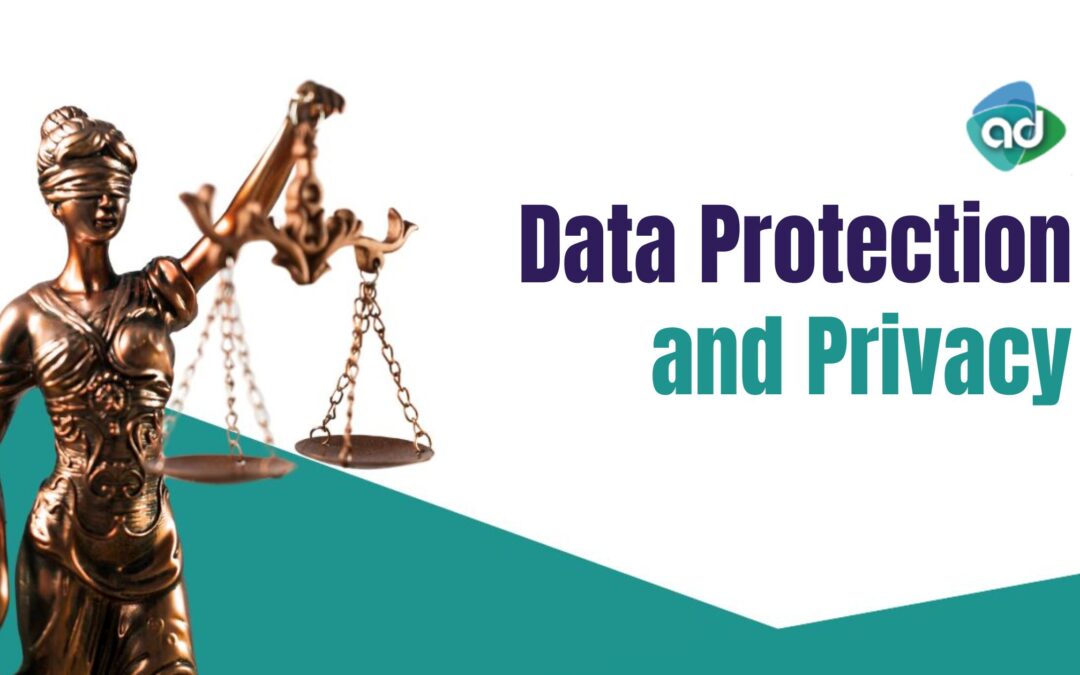The modern business landscape heavily relies on data and technology to drive growth and efficiency. With the rise of digital platforms and the collection of personal information, the importance of data protection and privacy has become a major concern for consumers and businesses alike. In this blog post, we will explore the role of data protection and privacy in modern business practices and the legal implications of non-compliance.
Data Protection: An Overview
Data protection safeguards personal information from unauthorised access, use, or disclosure. This includes any data that can identify an individual, such as name, address, contact details, or even online identifiers such as IP address and cookies. In the UK, data protection is regulated by the Data Protection Act 2018, which implemented the EU’s General Data Protection Regulation (GDPR).
The Importance of Data Protection in Business
Data protection is not only essential for the protection of an individual’s privacy, but it also plays a crucial role in modern business practices. Here are some of the key reasons why data protection should be a top priority for businesses:
-
Building Consumer Trust and Confidence
In today’s digital age, consumers are becoming increasingly aware of their data privacy and are more cautious about sharing their personal information with businesses. By demonstrating a solid commitment to data protection and compliance with regulations, companies can build customer trust and confidence, positively impacting their brand reputation and attracting new customers.
-
Mitigating Risks of Data Breaches and Cyber Attacks
Data breaches and cyber attacks are becoming increasingly frequent and can have severe consequences for businesses. In addition to reputational damage, data breaches can result in financial losses, legal penalties, and the loss of customers’ trust. Following proper data protection measures, businesses can mitigate these risks and protect themselves from potential harm.
-
Compliance with Legal Obligations and Avoiding Penalties
As mentioned earlier, in the UK, data protection is regulated by the Data Protection Act 2018. This Act, along with the GDPR, sets out strict guidelines and requirements for collecting, using, and storing personal data. Non-compliance with these regulations can result in severe penalties, including hefty fines of up to 4% of a business’s annual global turnover or €20 million, whichever is higher. Therefore, companies must have robust data protection policies and procedures to ensure compliance and avoid these penalties.
Implications of Non-compliance
The consequences of non-compliance with data protection regulations can be severe, both financially and legally. In addition to the high penalties mentioned earlier, non-compliance can also result in:
– Damage to Business Reputation: A data breach or non-compliance with data protection regulations can cause significant damage to a business’s reputation, leading to a loss of customers and revenue.
– Legal Consequences: Non-compliance can also result in legal action taken by individuals or regulatory bodies, leading to costly legal battles and fines.
– Loss of trust and confidence: Non-compliance can result in a loss of trust and confidence among customers, investors, and partners, which can have long-lasting effects on a business’s success.
Compliance with Data Protection Regulations
To ensure compliance with data protection regulations and avoid the implications of non-compliance, businesses must take the following steps:
-
Conduct Data Protection Impact Assessments (DPIAs)
A DPIA identifies and minimises data protection risks when starting a new project, launching a new product or service, or significantly changing existing processes. It involves an assessment of the potential impact of the project on individuals’ data and implementing measures to mitigate these risks.
-
Implement Robust Data Protection Policies and Procedures
Businesses must have clear and comprehensive data protection policies and procedures in place. These should cover all aspects of data handling, including data collection and retention, data security, and data sharing with third parties.
-
Train Employees on Data Protection Practices
Employees are often the first line of defence regarding data protection. Therefore, it is crucial to provide regular training on data protection policies and procedures to ensure that all employees know their responsibilities and understand the importance of data protection.
-
Appoint a Data Protection Officer (DPO)
Under the GDPR, certain businesses are required to appoint a DPO to oversee data protection compliance. Even if a DPO is not mandatory for your business, appointing one to manage data protection obligations effectively is still advisable.
Conclusion
Data protection and privacy have become increasingly crucial in modern business practices due to the growing use of digital platforms and the collection of personal information. Businesses that prioritise data protection can build trust and confidence among their customers, mitigate the risks of data breaches, and comply with legal obligations. On the other hand, non-compliance can lead to severe penalties, damage to business reputation, and loss of customer trust. Therefore, businesses need to have comprehensive data protection policies and procedures and stay up-to-date with the latest regulations to ensure compliance and protect their customers and themselves.
